President Ferdinand Marcos Jr. flexes key achievements in first 100 days
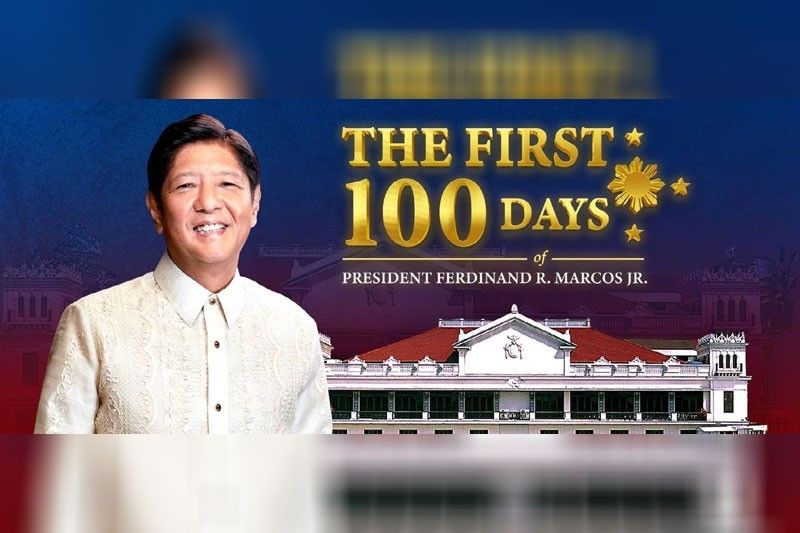
MANILA, Philippines — President Ferdinand Marcos Jr. flexed the key achievements of his administration in the first 100 days, as the country continues to recover from the global health crisis amid soaring inflation and tighter monetary conditions.
Marcos said during the President’s Night organized by the Manila Overseas Press Club (MOPC) that he was able to put up a functional government by finding “the best and the brightest to help and to serve in government.”
Officials from the economic cluster include Finance Secretary Benjamin Diokno, who heads the economic team, Budget Secretary Amenah Pangandaman, Socioeconomic Planning Secretary Arsenio Balisacan, and Bangko Sentral ng Pilipinas Governor Felipe Medalla.
“I think what we have managed to do in the first 100 days is put together a government, which is functional and which has a very, very good idea of what we are targeting in terms of strict economic targets, for example, in terms of the numbers of growth, the numbers of the different measures, the different metrics that we are using for the economy,” Marcos said during the Q&A portion of the event held Wednesday evening.
The Philippines exited the pandemic-induced recession with a gross domestic product (GDP) growth of 5.7 percent in 2021 after contracting by 9.6 percent in 2020, when the economy stalled due to strict COVID-19 quarantine and lockdown protocols. With further reopening, the economy expanded by 7.8 percent in the first half of the year, exceeding the 6.5 to 7.5 percent target set by economic managers.
This despite the slowdown to 7.4 percent in the second quarter from 8.2 percent in the first quarter.
For 2023 onwards, the Cabinet-level Development Budget Coordination Committee (DBCC) set a GDP growth target of 6.5 to eight percent.
“Since the campaign, unity has been our battle cry. And now that we are settling into our track and finding our pace for the six-year marathon, unity remains one of the primary driving forces in pursuing economic recovery,” the president said.
The Marcos administration continues to focus on strengthening the lives and capabilities of Filipinos.
“What we have to do is to strengthen the Philippine economy and strengthen our position in the world. And we need everyone’s help in that,” Marcos said.
To tame inflation and stabilize the peso, the Bangko Sentral ng Pilipinas (BSP) has raised interest rates by 225 basis points, confident that the economy could absorb the ongoing tightening cycle caused by the hawkish US Federal Reserve.
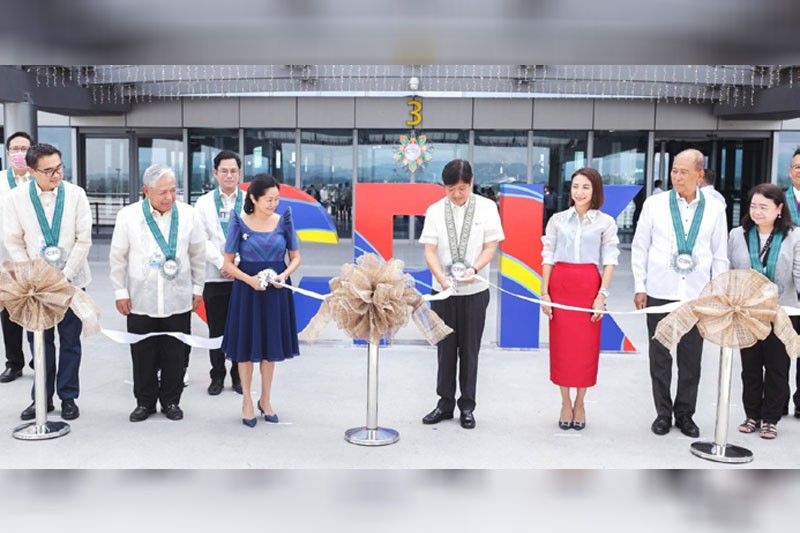
Competent appointments
Albay Rep. Joey Salceda said in a statement that the f irst 100 days of the Marcos administration have been a stabilizing period amid global disruption caused by soaring oil and non-oil prices due to the Russia-Ukraine war, supply side disruptions, tightening global financial conditions, among others.
Salceda, chairman of the Committee on Ways and Means at the House of Representative, said the Marcos government had “competent appointments, drama-free management of disasters and crises, and a focus on the most essential matter: agriculture.” “President Marcos is treading carefully, but decisively on critical areas, including agricultural imports, tax policy, and the management of the COVID-19 pandemic,” Salceda said.
To accelerate the government’s key reform agenda, the lawmaker said the rules and regulations of the Renewable Energy law must be implemented as soon as possible; the rules in the offshore gaming regulations under the Philippine Offshore Gaming Operators (POGO) Tax law should be enforced; and the transition from the pandemic to the endemic stage should be managed. According to Salceda, Malacañang should also issue an executive order to improve the country’s capacity to earn US dollars by lifting the deployment bans, ease of doing business for business process outsourcing (BPOs) and export industries, as well as full reopening and promotion of the country to foreign tourists.

Food sufficiency
Marcos has assumed the leadership of the Department of Agriculture (DA), reflecting the administration’s efforts to secure food sufficiency. “Locally, the Department of Agriculture has continuously provided production inputs to farmers and fisherfolk, such as high-quality seeds and fertilizers, as well as post-harvest machinery and facilities, including trucks, dryers, and mills — all that can potentially contribute to the productivity and profitability of our farm workers and to increase their livelihoods for them to once again make a living out of the agricultural sector,” Marcos said in his speech.
Early in his term, Marcos faced several challenges including soaring food prices led by sugar and rice.
Inflation averaged 5.1 percent in the first nine months of the year, after soaring to a four-year high of 6.9 percent in September from 6.3 percent in August. The consumer price index has been surpassing the BSP’s two- to four-percent target since April this year.
The central bank’s Monetary Board now expects inflation to hit 5.6 percent this year, instead of the previous forecast of 5.4; and to settle at 4.1 next year instead of four percent.
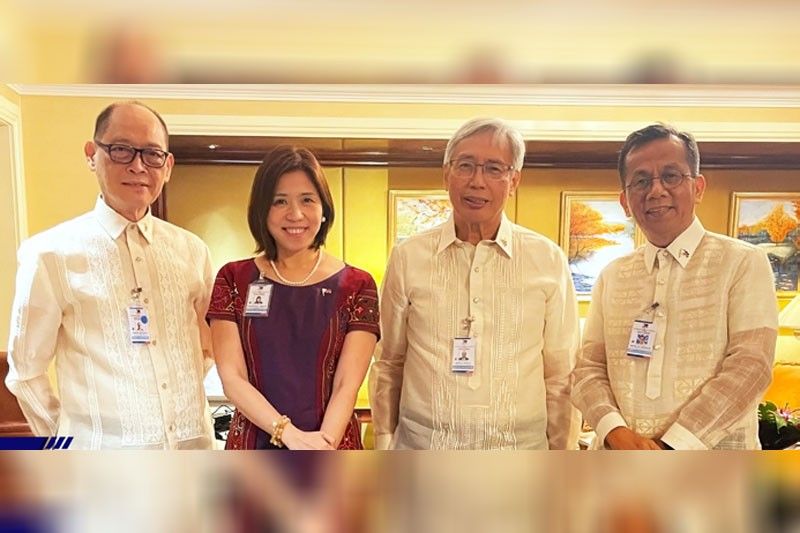
Lower budget gap, higher debt
Michael Ricafort, chief economist at Rizal Commercial Banking Corp. (RCBC), believes higher inflation presents challenges to the new government to impose new or higher taxes and other fiscal reform measures.
“The government’s decision to maintain excise taxes on petroleum products would help sustain the government’s recurring revenue collections and prevent unnecessary widening of the country’s budget deficit,” Ricafort said.
Latest data from the Bureau of the Treasury (BTr) showed the country’s budget deficit narrowed by 40.4 percent to P72.04 billion in August from P120.9 billion in the same month last year.
This resulted in a 13.1 percent decline in the budget shortfall to P833 billion from January to August this year compared with P958.2 billion in the same period last year.
“There are measures to further re-open the economy towards greater normalcy, as manifested by the easing of mask-wearing mandates at open spaces, similar to other countries such as Singapore more than a month ago,” Ricafort said.
On the other hand, the national government debt inched up to a record high P13.02 trillion in end August from P12.89 trillion in end July amid higher borrowings to f inance COVID-19 measures.
“Nevertheless, this largely reflects the narrowing/ improvement of the budget deficit in terms of the faster growth in government tax revenue collections, and the much slower growth in government expenditures amid recent measures to further re-open the economy towards greater normalcy,” Ricafort said.
The economist from the Yuchengco-led bank also expects more foreign investment inflows after President Marcos traveled to Indonesia, Singapore, and the US.
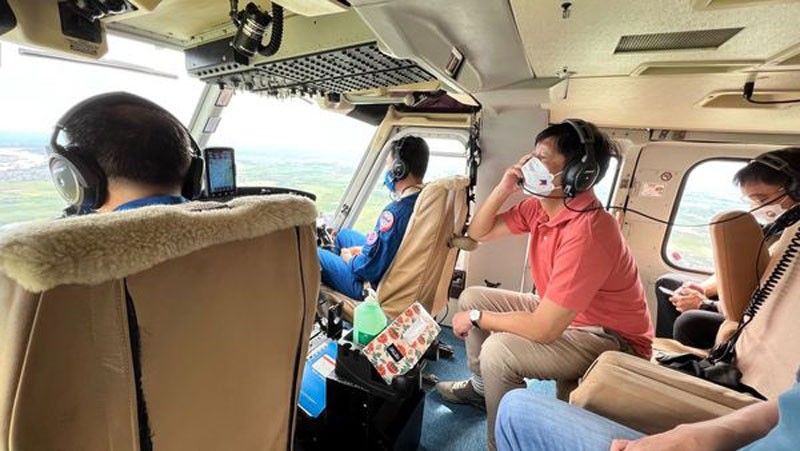
$19B investment pledges
President Marcos also had productive visits to Indonesia, Singapore, and the US with total investment commitments of $18.9 billion that are expected to generate 134,285 jobs.
The Marcos government secured $14.36 billion in investment pledges following his inaugural state visits to Indonesia and Singapore, which will support the administration’s economic recovery and job generation initiatives.
The state visit of the Chief Executive to Indonesia from Sept. 4 to 6 yielded $8.48 billion in commitments, of which bulk or $6.54 billion is for an infrastructure project involving an unsolicited private-public partnership (PPP) on a four-level elevated expressway along C-5.
Likewise, Marcos secured investment pledges amounting to P6.5 billion during his state visit to Singapore from Sept 6 to 7. The pledges were for electric tricycles worth $5 billion and a renewable energy project worth $1.2 billion.
While attending the 77th session of the United Nations General Assembly in New York from Sept. 18 to 24, the president took the opportunity to woo American investors to set up shop in the Philippines.
The trip managed to get $3.9 billion worth of investment commitments that are expected to create around 112,285 jobs.
During the Philippine Economic Briefing in New York, Marcos said that the Philippines is a smart investment choice, and now is the best time to do business in the country.
“We invite strategic investors from the United States to take part in this Philippines economic resurgence. Key structural reforms have been set in place to allow for wider participation in our industries,” Marcos said.
With a mandate from 31 million voters to become the 17th president of the Philippines, Marcos Jr. is starting to carve his own legacy.
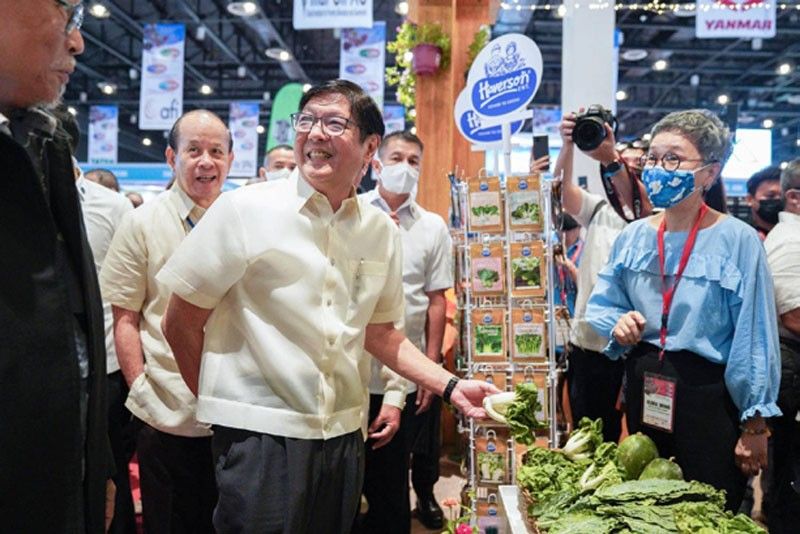
- Latest
- Trending
































